A Wells Fargo bank manager tried to warn the head of the company’s regional banking unit of an improperly created customer account in January 2006, five years earlier than the bank has said its board first learned of abuses at its branches.In recent months, the discovery of as many as 2 million improperly created accounts has widened into a public scandal for Wells Fargo, one of the country’s largest banks by assets. Some lawmakers, including Sen. Elizabeth Warren of Massachusetts and Rep. Roger Williams of Texas, have called for CEO John Stumpf to step down. A letter written in 2005 and obtained by VICE News details unethical practices that occurred at Washington state branches of the bank, suggesting the conduct began years before previously understood.Dennis Hambek, a former branch manager in West Yakima, Washington, sent a certified letter in January 2006 to Carrie Tolstedt, then Wells Fargo’s head of regional banking, outlining unethical “gaming” activity at area branches. In 2007, Tolstedt was made the company’s head of community banking, the division where many of the unethical practices occurred.Watch the full report from VICE News Tonight on HBOHambek says a customer named Bill Moore came to his branch in July 2005 after he learned that a different Wells Fargo branch had opened checking, savings, and debit-card accounts in his name without his authorization. Hambek asked Moore to write out details of his complaint. Then, Hambek says, he reported the ethics violation to the bank’s investigations department and called a hotline employees were encouraged to use to report misconduct. He says no action was taken.Six months later, Hambek sent the certified letter explaining what he had seen to Tolstedt. “I would hope that this type of management is only occurring in Washington and not throughout Wells Fargo,” he wrote.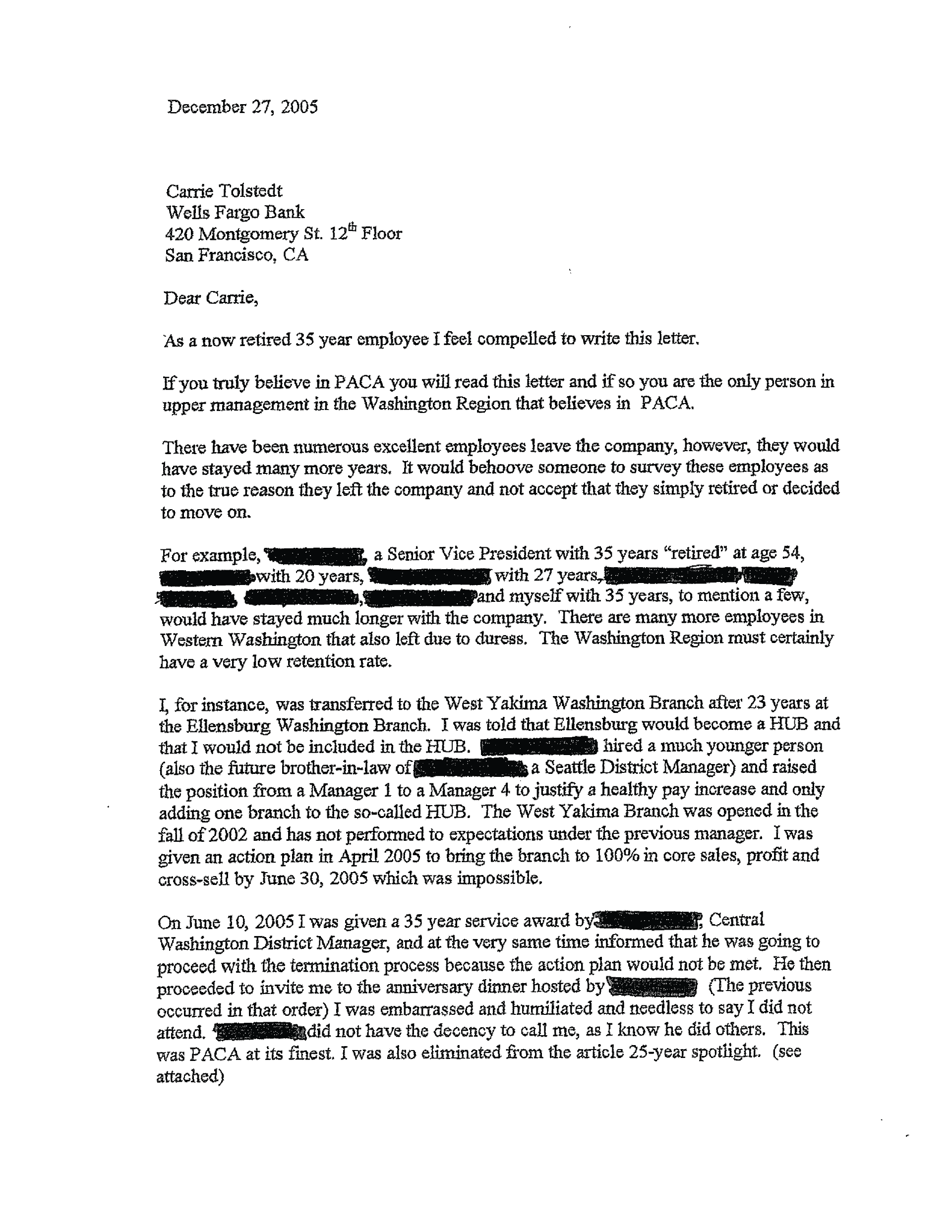
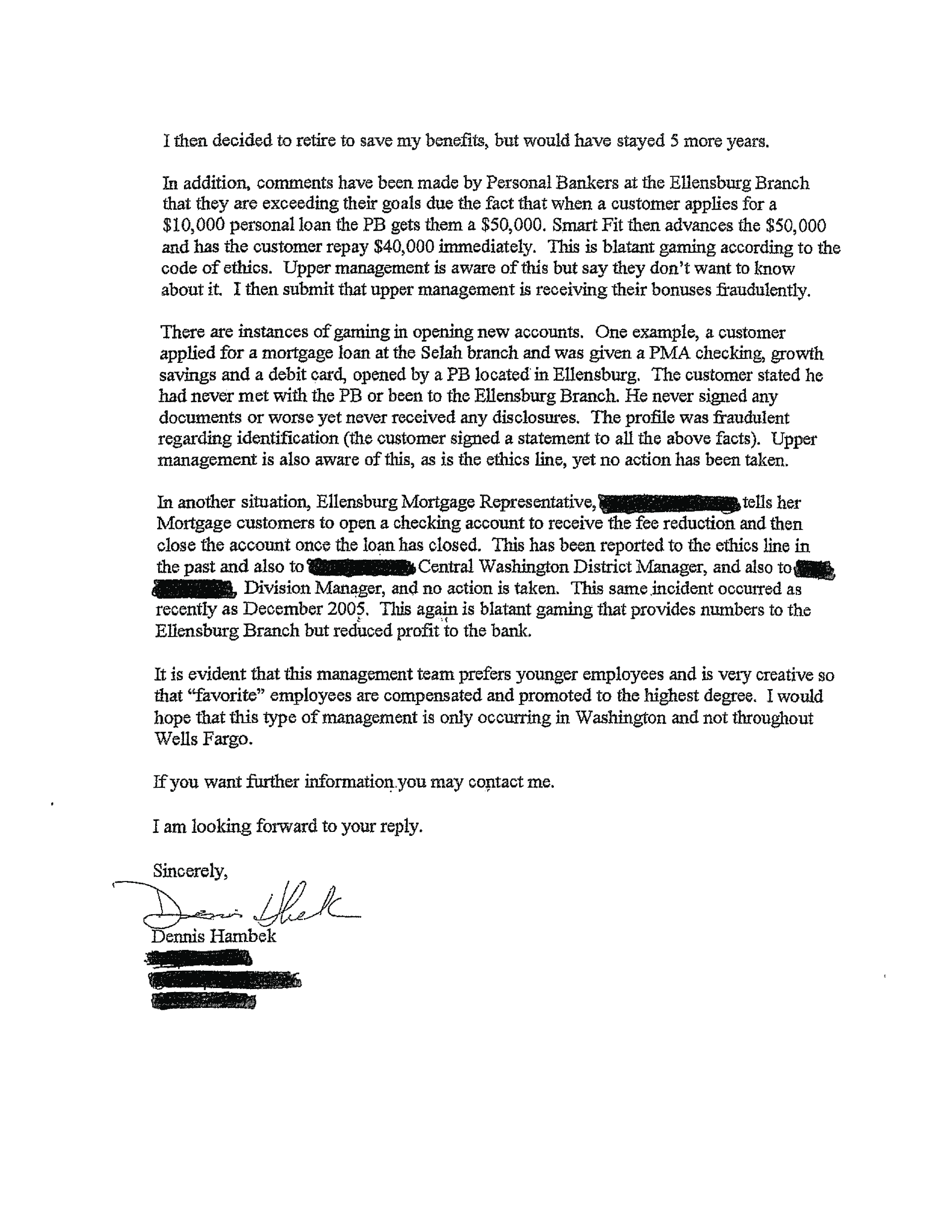 On Sept. 8 of this year, Wells Fargo was fined $185 million to resolve claims that employees created bank and credit card accounts for customers without their consent, among other unethical banking practices. Former employees blamed a high-pressure sales culture and unattainable sales goals for their actions. Some fraudulent accounts generated fees, leaving customers to deal with consequences including collections calls and damaged credit.The bank agreed to the fines without admitting to or denying the accusations and said that since 2011 it has fired more than 5,300 low-level employees for engaging in improper sales practices. Stumpf testified at a House Financial Services Committee hearing Sept. 29 that the company board got “reports at a committee level, at a high level, about ethics lines requests or information” as early as 2011.Hambek’s two-page letter was addressed to Tolstedt at Wells Fargo’s San Francisco headquarters. It was signed upon receipt on Jan. 30, 2006, but the signature is illegible. We were unsuccessful in our attempts to reach Tolstedt to confirm whether she received or read the letter.
On Sept. 8 of this year, Wells Fargo was fined $185 million to resolve claims that employees created bank and credit card accounts for customers without their consent, among other unethical banking practices. Former employees blamed a high-pressure sales culture and unattainable sales goals for their actions. Some fraudulent accounts generated fees, leaving customers to deal with consequences including collections calls and damaged credit.The bank agreed to the fines without admitting to or denying the accusations and said that since 2011 it has fired more than 5,300 low-level employees for engaging in improper sales practices. Stumpf testified at a House Financial Services Committee hearing Sept. 29 that the company board got “reports at a committee level, at a high level, about ethics lines requests or information” as early as 2011.Hambek’s two-page letter was addressed to Tolstedt at Wells Fargo’s San Francisco headquarters. It was signed upon receipt on Jan. 30, 2006, but the signature is illegible. We were unsuccessful in our attempts to reach Tolstedt to confirm whether she received or read the letter.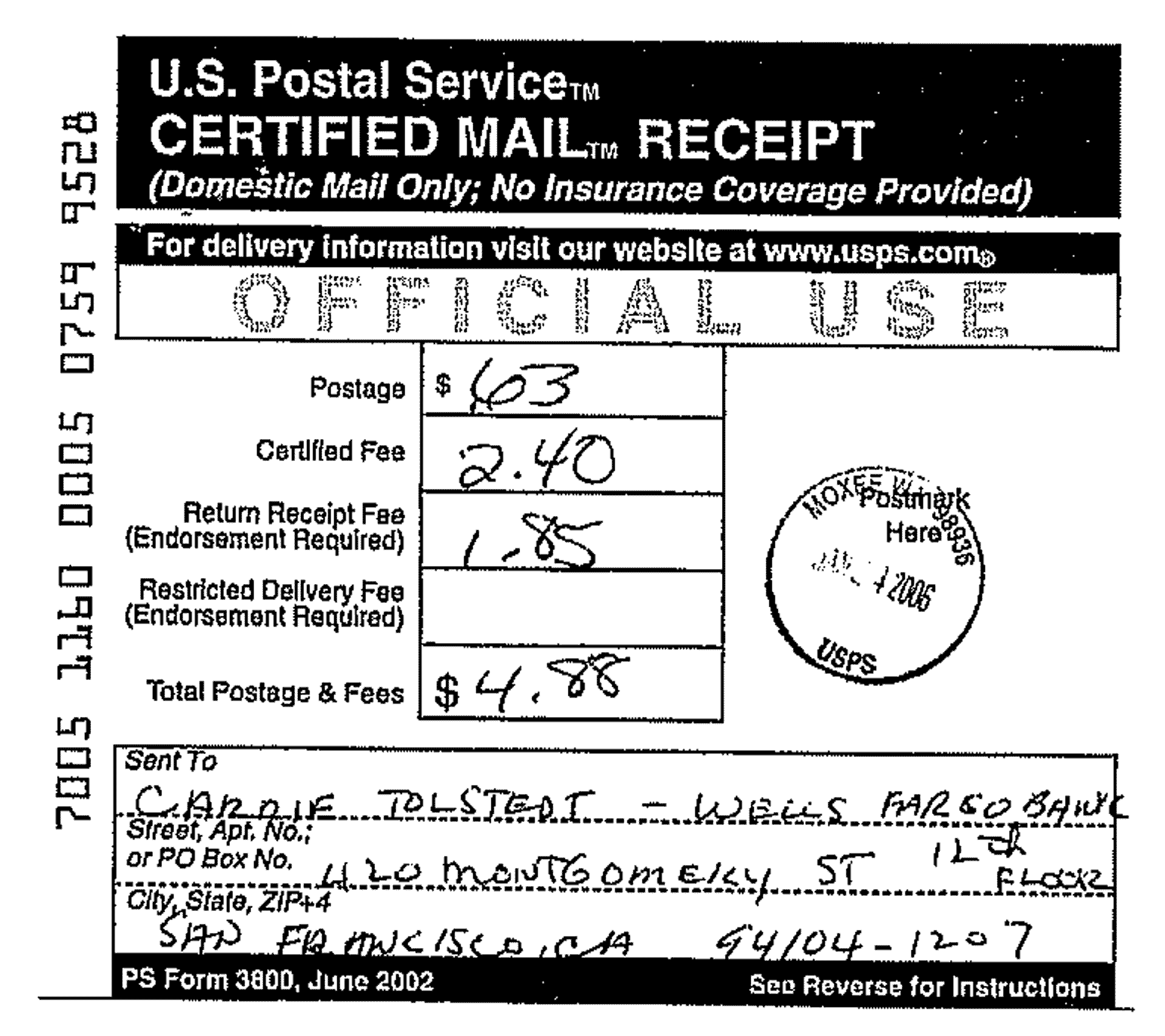
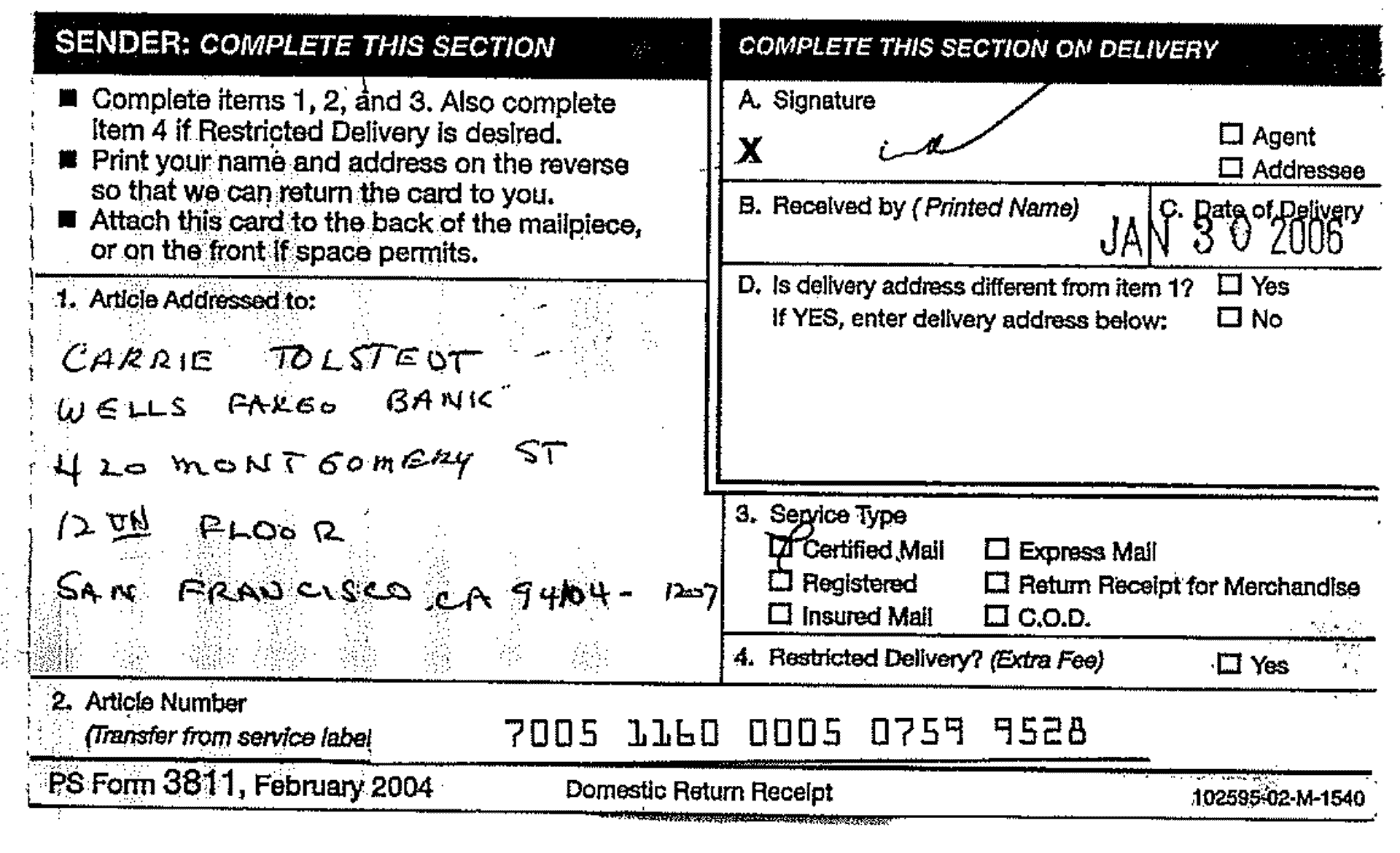 Bill Moore got a letter in July 2005 notifying him of new checking and savings accounts. He says he promptly stormed into Wells Fargo’s West Yakima branch to demand an explanation.Hambek, the branch manager, examined Moore’s account. Moore had applied for a mortgage with Wells Fargo at a local branch that year but he says he had no other business with the bank. Hambek looked at Moore’s customer profile and discovered that the Wells Fargo employee who opened Moore’s checking and savings accounts had entered Moore’s driver’s license number as “MOOREWF00000” and the date of issuance as Jan. 1, 2000, a date when the Washington State Department of Licensing would have been closed.“Known to Banker” was entered as a secondary form of identification, even though Moore told Hambek he had never met with a banker to discuss a personal banking account.
Bill Moore got a letter in July 2005 notifying him of new checking and savings accounts. He says he promptly stormed into Wells Fargo’s West Yakima branch to demand an explanation.Hambek, the branch manager, examined Moore’s account. Moore had applied for a mortgage with Wells Fargo at a local branch that year but he says he had no other business with the bank. Hambek looked at Moore’s customer profile and discovered that the Wells Fargo employee who opened Moore’s checking and savings accounts had entered Moore’s driver’s license number as “MOOREWF00000” and the date of issuance as Jan. 1, 2000, a date when the Washington State Department of Licensing would have been closed.“Known to Banker” was entered as a secondary form of identification, even though Moore told Hambek he had never met with a banker to discuss a personal banking account.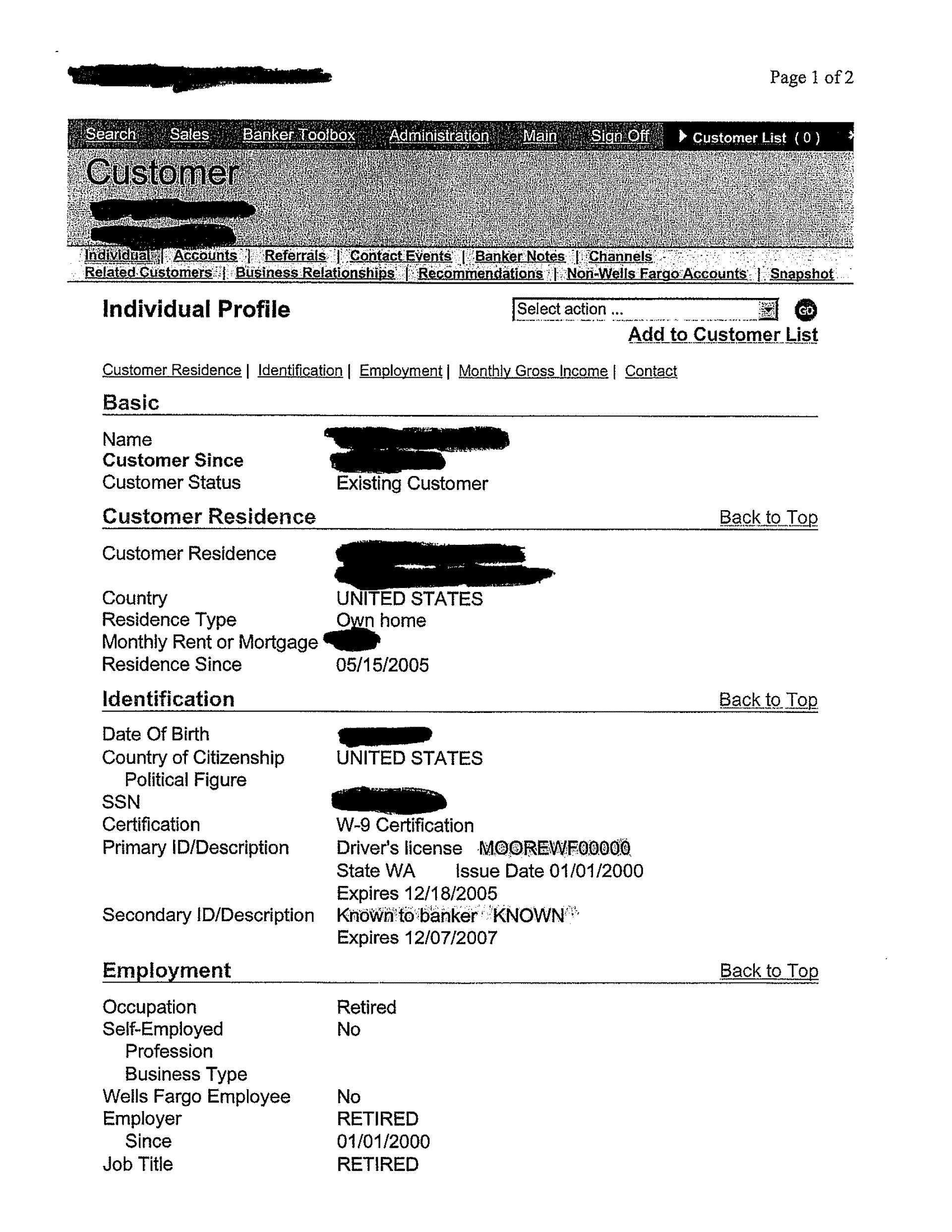 Suspecting fraud, Hambek asked Moore to write a letter detailing the sequence of events. “A checking and savings account was opened in my name that I did not authorize,” Moore’s note says. “I did not sign any checking paper.”
Suspecting fraud, Hambek asked Moore to write a letter detailing the sequence of events. “A checking and savings account was opened in my name that I did not authorize,” Moore’s note says. “I did not sign any checking paper.”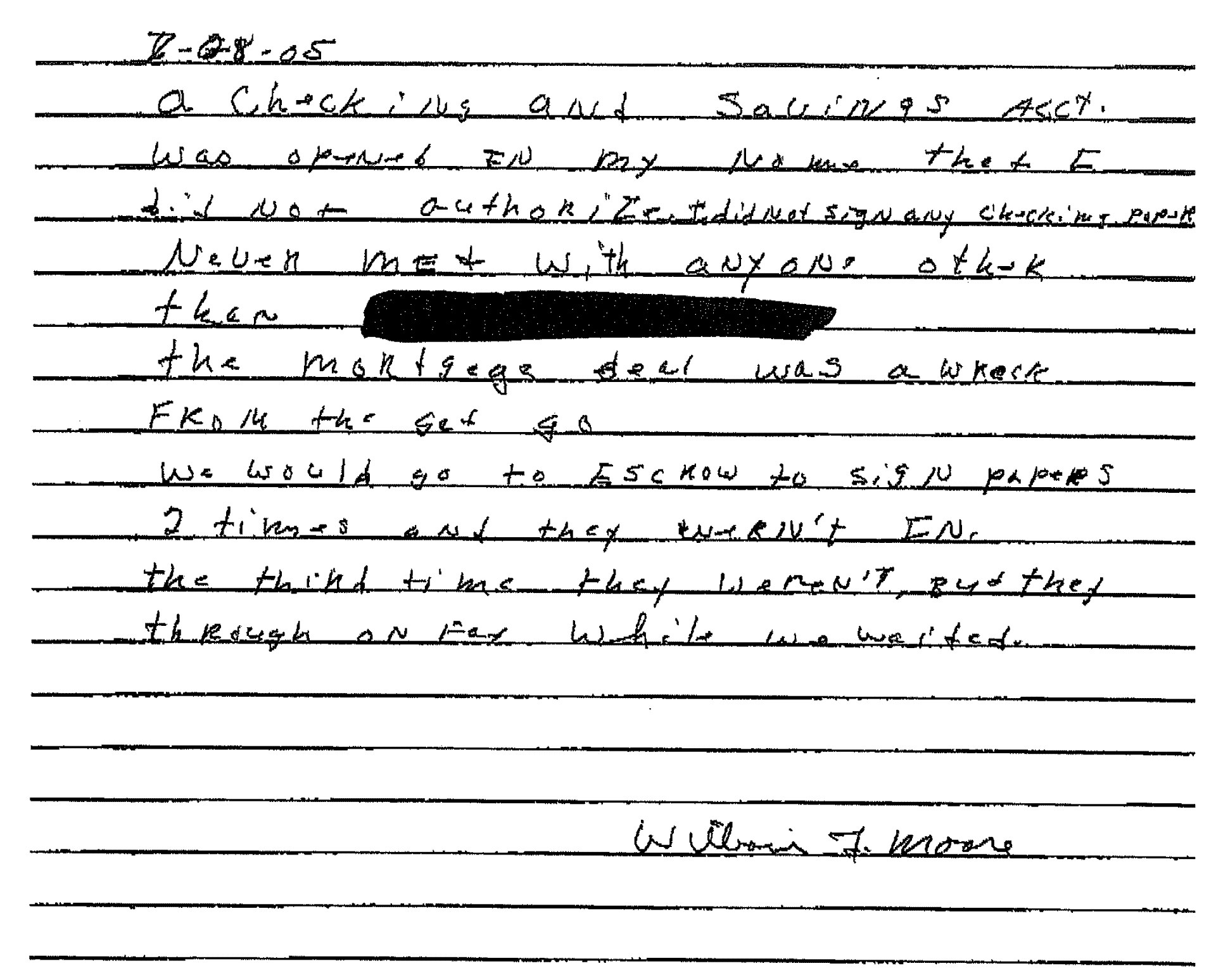 Wells Fargo announced in July that Tolstedt would step down as the head of community banking, after the bank had been notified internally of a federal investigation into its sales practices but before the investigation had been made public. The company then said Tolstedt would stay on until the end of 2016, when she would retire.Stumpf said Tolstedt’s retirement was voluntary and praised her as “a standard-bearer of our culture” and “a champion for our customers” in the July 12 release announcing her decision.But on Sept. 27, Wells Fargo quietly issued a press release stating that Tolstedt had left the bank and would forfeit outstanding equity valued at roughly $19 million. Wells Fargo declined to comment about Tolstedt’s abrupt departure from the company.
Wells Fargo announced in July that Tolstedt would step down as the head of community banking, after the bank had been notified internally of a federal investigation into its sales practices but before the investigation had been made public. The company then said Tolstedt would stay on until the end of 2016, when she would retire.Stumpf said Tolstedt’s retirement was voluntary and praised her as “a standard-bearer of our culture” and “a champion for our customers” in the July 12 release announcing her decision.But on Sept. 27, Wells Fargo quietly issued a press release stating that Tolstedt had left the bank and would forfeit outstanding equity valued at roughly $19 million. Wells Fargo declined to comment about Tolstedt’s abrupt departure from the company.
Advertisement


Advertisement


Advertisement

